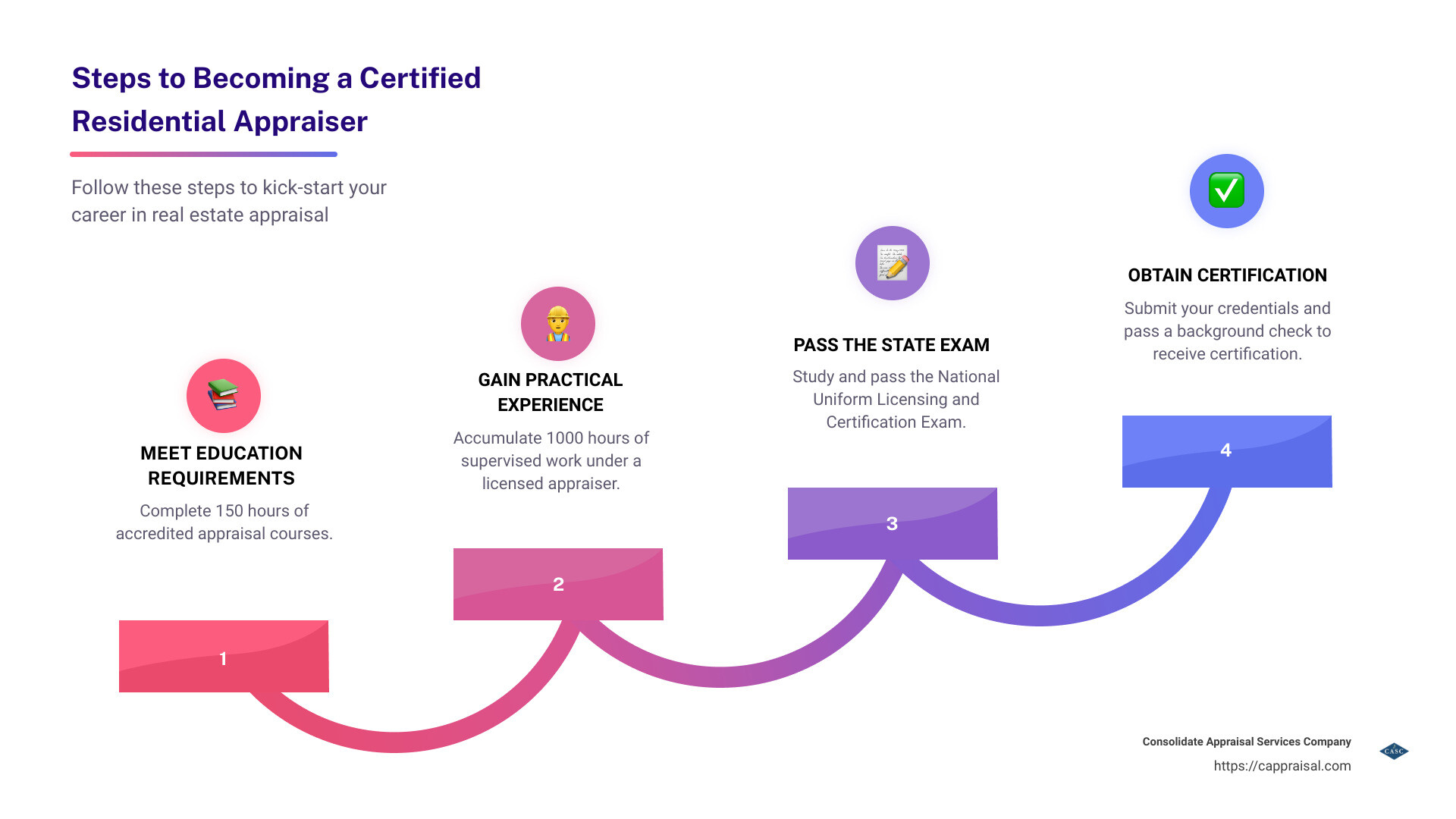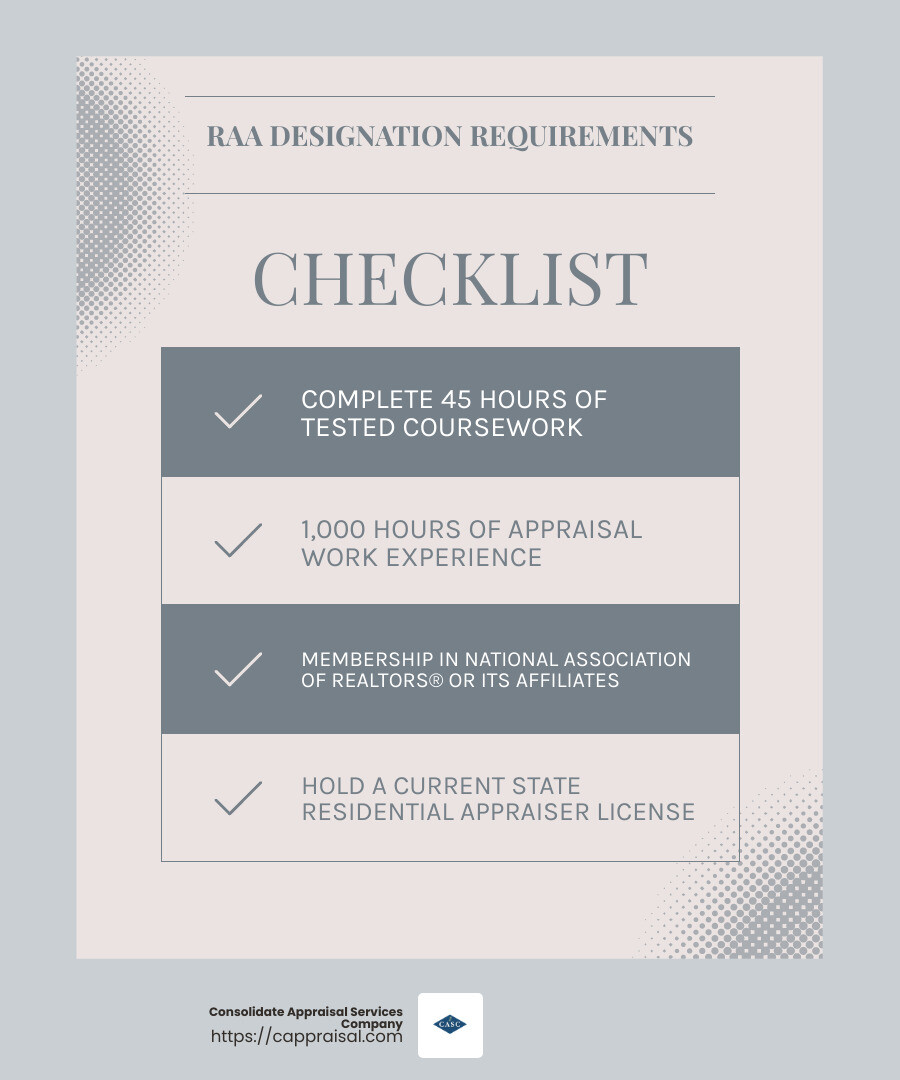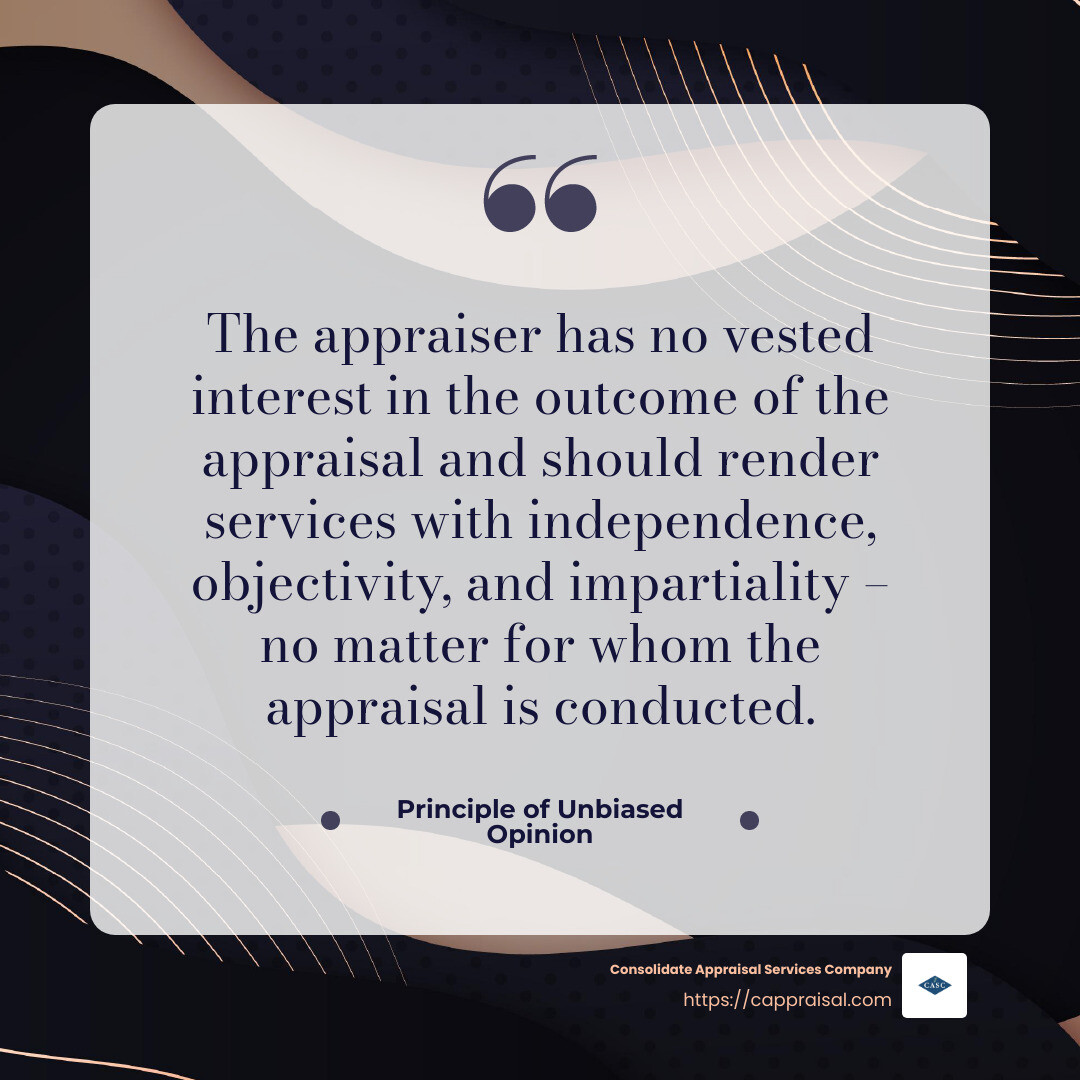Certified residential appraisers: Top Steps to Success in 2024
Open uping the Path to Becoming a Certified Residential Appraiser
Certified residential appraisers play a crucial role in the real estate market by providing unbiased opinions on the value of homes with up to four residential units. Here’s what you need to know:
- Overview: A certified residential appraiser evaluates the market value of properties and helps ensure fair real estate transactions.
- Certification Process: To become certified, one must meet specific education requirements, gain practical experience, and pass a state exam.
- Importance of Certification: Certification ensures appraisers adhere to high standards, providing reliable valuations essential for buyers, sellers, and lenders.
My name is Timothy Harpster, President of Consolidated Appraisal Services Company. I hold the Accredited Rural Appraiser (ARA) designation and have experience in appraising everything from simple residential homes to complex commercial properties.

Understanding the Role of a Certified Residential Appraiser
Certified residential appraisers play a crucial role in the real estate market by providing unbiased opinions on the value of homes with up to four residential units. Here’s what you need to know:
Market Value
The primary job of a certified residential appraiser is to determine the market value of a property. Market value is what a willing buyer would likely pay a willing seller in an open market. This value is essential for buyers, sellers, lenders, and even municipalities for property tax purposes.
Appraisers use various methods to determine market value, including the sales comparison approach, the cost approach, and the income approach. Each method provides a different perspective and helps ensure a comprehensive evaluation.
Unbiased Opinion
A certified residential appraiser must provide an unbiased opinion of a property’s value. This means acting independently of the buying and selling parties. Appraisers are expected to be objective, impartial, and free from external pressures.
“The appraiser has no vested interest in the outcome of the appraisal and should render services with independence, objectivity, and impartiality – no matter for whom the appraisal is conducted.”
This objectivity is critical for maintaining trust in the real estate market. It ensures that all parties involved in a transaction have a fair and accurate understanding of the property’s worth.
Real Estate Industry
In the real estate industry, certified residential appraisers are indispensable. Their evaluations are used for various purposes:
- Buying and Selling: Ensuring that the transaction price is fair.
- Refinancing: Helping lenders determine the appropriate loan amount.
- Estate Planning: Providing accurate valuations for inheritance purposes.
- Dispute Resolution: Offering expert opinions in legal cases.
- Tax Assessment: Assisting municipalities in setting property taxes.
The role of a certified residential appraiser extends beyond just determining value. They also conduct thorough inspections, document their findings, and provide detailed reports. These reports include an executive summary, property description, market analysis, and the rationale for their valuation methods.
Appraisers must also stay updated with continuing education. As of January 1, 2023, new requirements include at least 1 hour of cultural competency and 2 hours of elimination of bias training for license renewals. This ensures they remain knowledgeable about best practices and emerging trends in the industry.
By providing accurate and unbiased property valuations, certified residential appraisers help maintain the integrity of the real estate market. Their work is essential for ensuring fair transactions and supporting the overall health of the housing economy.
Next, we will explore the steps to becoming a certified residential appraiser, including education requirements, gaining experience, and passing the state exam.
Steps to Becoming a Certified Residential Appraiser
Becoming a certified residential appraiser involves a series of steps, each crucial for ensuring you are well-prepared to provide accurate and unbiased property valuations. Here’s a breakdown:
Education Requirements
Certified residential appraisers must meet specific education criteria. These requirements ensure that aspiring appraisers have a solid foundation in relevant subjects.
150 Hours of Appraisal Courses:
- The journey begins with completing 150 hours of appraisal courses. These courses cover essential topics such as real estate principles, market analysis, and valuation techniques.
Accredited College Education:
- You need to meet one of six educational options. For instance, you can hold a bachelor’s degree in any field or an associate’s degree in a related field like business administration, accounting, or real estate. Alternatively, you can complete 30 semester hours of specific college-level courses or pass equivalent CLEP® exams.
Gaining Experience
Practical experience is vital for honing your skills as an appraiser. Here’s what you need to do:
Work Under a Licensed Appraiser:
- You must gain hands-on experience by working under the supervision of a licensed appraiser. This mentorship is crucial for learning the nuances of property appraisal.
Accumulate 1,000 Hours of Practical Experience:
- Aspiring appraisers need to complete at least 1,000 hours of supervised work. This experience typically spans over a minimum of six months and involves conducting property inspections, preparing appraisal reports, and applying various valuation methods.
Passing the State Exam
To become certified, you must pass the state exam, which tests your knowledge and competency in real estate appraisal.
National Uniform Licensing and Certification Exam:
- The exam is standardized across states and covers a wide range of topics, including appraisal procedures, standards, and ethics.
Study Tips:
- Review Course Materials: Go over the coursework and any additional study guides.
- Practice Exams: Take practice tests to familiarize yourself with the format and types of questions.
- Join Study Groups: Collaborating with peers can provide valuable insights and support.
Additional Requirements
Background Check:
- A thorough background check is conducted to ensure you have no criminal history that would disqualify you from becoming an appraiser.
Surety Bond:
- Some states may require a surety bond as a financial guarantee that you will adhere to professional standards and ethical practices.
By following these steps, you can open up the door to a rewarding career as a certified residential appraiser. Next, we will explore the different levels of appraisal licensing in California, from appraisal trainees to certified residential appraisers.
The Different Levels of Appraisal Licensing in California
In California, there are three primary levels of appraisal licensing: Appraisal Trainees (AT), Licensed Residential Appraisers (AL), and Certified Residential Appraisers (AR). Each level has its own set of educational and experience requirements, allowing appraisers to advance their careers step by step.
Appraisal Trainees (AT)
Appraisal Trainees are the entry-level professionals in the appraisal industry. To become an Appraisal Trainee, you must:
Educational Requirement:
- Complete 75 hours of basic appraisal education. This includes courses on basic appraisal principles, procedures, and the Uniform Standards of Professional Appraisal Practice (USPAP).
Supervised Experience:
- Work under the direct supervision of a licensed appraiser. This mentorship is essential for gaining practical knowledge and experience in property valuation.
As an Appraisal Trainee, you will assist your supervisor with property inspections, data collection, and report preparation, gradually building your expertise.
Licensed Residential Appraisers (AL)
Licensed Residential Appraisers have more responsibilities and can work independently on non-complex residential properties. To reach this level, you need to:
Additional Education:
- Complete a total of 150 hours of appraisal education, which includes the 75 hours required for trainees plus additional coursework in residential market analysis, site valuation, and cost approach.
Independent Work:
- Licensed Residential Appraisers can appraise non-complex one-to-four residential units with a transaction value of less than $1 million. They can also appraise complex units with a transaction value of less than $250,000.
This level allows for more autonomy and the ability to handle a broader range of appraisal assignments.
Certified Residential Appraisers (AR)
Certified Residential Appraisers represent the highest level of residential appraisal licensing. They are qualified to appraise all types of residential properties, including complex units. To become a Certified Residential Appraiser, you must:
Highest Level of Education:
- Meet one of the six educational options, such as holding a bachelor’s degree in any field or completing 30 semester hours of college-level courses in specific subjects like finance, economics, and real estate law.
Extensive Experience:
- Accumulate at least 1,500 hours of appraisal experience over a minimum of 12 months. This experience must be gained under the supervision of a certified appraiser and should include both non-complex and complex property appraisals.
Certified Residential Appraisers can appraise any residential property, regardless of transaction value or complexity. They are often sought after for high-value properties and legal proceedings, such as divorce or estate settlements.
By understanding the different levels of appraisal licensing in California, you can chart a clear path for your career advancement in the appraisal industry. Next, we will dig into the benefits of becoming a Certified Residential Appraiser.
Benefits of Becoming a Certified Residential Appraiser
Becoming a Certified Residential Appraiser (CRA) offers many advantages. Here are the key benefits:
Higher Salary
Certified Residential Appraisers often earn more than their non-certified counterparts. According to Investopedia, it’s not unusual for CRAs to charge over $500 per appraisal, sometimes even thousands, for less than a day’s work. This higher earning potential is a strong motivator for many aspiring appraisers.
Professional Recognition
Earning a CRA designation signals a commitment to excellence in the appraisal industry. It shows that you have met rigorous educational and experience requirements. Your clients and peers will recognize you as an expert in your field. This professional recognition can lead to more job opportunities and a stronger reputation.
Career Advancement
Certification opens doors to more complex and high-value appraisal assignments. Certified Residential Appraisers can appraise any residential property, regardless of its complexity or value. This ability to handle a broader range of assignments can lead to more diverse and rewarding career opportunities.
Additionally, many certified appraisers choose to pursue further designations, such as the Residential Accredited Appraiser (RAA), which requires additional coursework and professional affiliation. These advanced designations can further improve your career prospects and earning potential.
By understanding these benefits, you can see why becoming a Certified Residential Appraiser is a valuable career move. Next, we will explore what is required to earn the RAA designation and how it can further improve your career.
What is an RAA Designation and How to Earn It
The Residential Accredited Appraiser (RAA) designation is an advanced credential for appraisers who aim to showcase their dedication and expertise in residential property appraisal. This designation is awarded by the National Association of REALTORS® (NAR) and signifies that an appraiser has gone above and beyond the basic requirements for certification.
Education for RAA Designation
To earn the RAA designation, you must complete 45 hours of tested coursework. This is in addition to the education required by the Appraiser Qualification Board (AQB) at the time of your state certification. These courses dig deeper into specialized areas of appraisal, ensuring that you are well-prepared to handle complex residential appraisal tasks.
The coursework is rigorous and designed to test your knowledge and skills comprehensively. This additional education is a testament to your commitment to excellence in the field.
Work Experience for RAA Designation
Beyond education, you must also have a minimum of 1,000 hours of appraisal work experience that exceeds the state certification requirements. This experience is crucial as it demonstrates your capability to apply your knowledge in real-world scenarios.
These 1,000 hours ensure that you have substantial hands-on experience, making you more proficient and reliable in your appraisals. This experience is a significant factor that sets RAA designees apart from other appraisers.
Professional Affiliation for RAA Designation
To qualify for the RAA designation, you must be a member in good standing of the National Association of REALTORS® or one of its affiliates. These affiliates include:
- Institute of Real Estate Management (IREM)
- Commercial Real Estate Institute (CCIM)
- REALTORS® Land Institute (RLI)
- Society of Industrial and Office REALTORS® (SIOR)
- Counselors of Real Estate (CRE)
Being part of these professional organizations indicates your commitment to maintaining high ethical standards and continuous professional development.
Additionally, you must hold a current state residential appraiser license. This ensures that you are legally recognized to perform appraisals and have met all state-specific requirements.

By meeting these educational, experiential, and professional requirements, you can earn the RAA designation, significantly enhancing your credibility and career prospects in the appraisal industry.
Next, we will tackle some frequently asked questions about certified residential appraisers to help you better understand the path to certification and beyond.
Frequently Asked Questions about Certified Residential Appraisers
Do appraisers have to be licensed?
Yes, appraisers must be licensed to perform appraisals for federally-related transactions, such as mortgages underwritten by national banks. The state requires adherence to specific educational, experiential, and examination standards. This ensures that appraisers are qualified and competent in their field.
How long does it take to become a home appraiser?
Becoming a home appraiser involves several steps that can take a few years to complete. Here’s a breakdown:
Education Hours: You need to complete 150 hours of appraisal-specific courses. These courses cover various topics, including property valuation, market analysis, and ethics.
Gaining Experience: Aspiring appraisers must work under a licensed appraiser and complete at least 1,000 hours of practical experience. This hands-on training is crucial for understanding real-world appraisal processes.
State Exam: After meeting the education and experience requirements, you must pass the National Uniform Licensing and Certification Exam. This exam tests your knowledge and skills in property appraisal.
In total, it can take anywhere from 1 to 3 years to meet all the requirements and become a licensed home appraiser.
How much do home appraisers make?
The income of home appraisers varies based on several factors, including experience, location, and the complexity of the appraisals they conduct. Here are some key points:
Average Salary: Certified residential appraisers can make a significant amount of money. The average salary ranges from $60,000 to $100,000 per year.
Income Range: Entry-level appraisers might start at a lower salary, around $40,000, while experienced appraisers can earn upwards of $150,000 annually, especially if they work in high-demand areas or handle complex appraisals.
Factors Affecting Salary: Several factors can influence an appraiser’s income, including the number of appraisals completed, the fees charged per appraisal, and additional certifications or designations like the RAA (Residential Accredited Appraiser).
While the potential for high earnings exists, appraisers are also responsible for their expenses, including insurance, software, and continuing education.
By understanding these FAQs, you can better steer the path to becoming a Certified Residential Appraiser and make informed decisions about your career in this field.
Conclusion
Becoming a Certified Residential Appraiser is a rewarding journey that requires dedication, education, and hands-on experience. It’s a profession that plays a crucial role in the real estate industry by providing unbiased property valuations, which are essential for transactions, loans, and investments.
Summary
The path to certification involves completing 150 hours of appraisal-specific education, gaining 1,000 hours of supervised experience, and passing a state exam. Additional certifications, such as the Residential Accredited Appraiser (RAA) designation, can further improve your qualifications and career prospects.
Importance of Certification
Certification is not just a regulatory requirement; it’s a mark of credibility and professionalism. It assures clients and lenders that the appraiser has the necessary knowledge and skills to deliver accurate and reliable property valuations. Moreover, certified appraisers often enjoy higher salaries, professional recognition, and more opportunities for career advancement.
Consolidated Appraisal Services Company
At Consolidated Appraisal Services Company, we are committed to helping aspiring appraisers achieve their certification goals. Our team of experienced professionals provides comprehensive and accurate property valuations across various sectors, including industrial, agricultural, residential, and commercial properties.
We pride ourselves on being the most trusted and licensed appraisers in the Midwest region. Our commitment to quality and accuracy ensures that our clients make informed and confident decisions.
Ready to open up the door to your certification? Contact us today to learn more about our services and how we can support your journey to becoming a Certified Residential Appraiser.
By understanding the steps and benefits of becoming a certified appraiser, you can confidently take the next steps in your career. Certification not only improves your professional standing but also opens up numerous opportunities in the real estate industry. Join us at Consolidated Appraisal Services Company and start your journey today!



